Top 10 Best Female Soccer Coaches In The World 2025
By ICON TEAM | Published on Sep 12, 2025
List Of Top 10 Best Female Soccer Coaches In The World 2025:
In 2025, women's soccer has achieved new heights, with new strategies, player development, and success around the world defining the sport. These coaches have not only won trophies, but they have also inspired generations by leading national teams to World Cup victories and dominating their own leagues. As of September 2025, this list shows the top 10 female soccer coaches based on their accomplishments, effects, and power. Their stories illustrate how strong they are, how smart they are at planning, and how dedicated they are to improving the women's game.
1. Sarina Wiegman:
As of 2025, Sarina Wiegman, the Dutch coach of the England women's national team, is the best female soccer coach in the world. Her unmatched success in big events has made her one of the best football managers of all time, whether they are men or women. Wiegman's career began as a midfielder for the Netherlands, where she earned 104 caps and captained the team. She then moved on to coaching with ADO Den Haag, where she won the league and cup double in 2012. Wiegman became the manager of England in 2021 and has turned the Lionesses into a powerhouse. She led them to victory at UEFA Women's Euro 2022 on home soil. This was the first major title for an English senior team since the men's 1966 World Cup. In 2023, she led England to the FIFA Women's World Cup final, although they lost to Spain 1-0. At Euro 2025 in Switzerland, England defended their title by beating Spain in a dramatic 3-1 penalty shootout after the final ended in a 1-1 draw. This was her greatest triumph. Wiegman won the European Championship three times in a row: in 2017 with the Netherlands, in 2022 with England, and in 2025 with the Netherlands again. Only Germany's Tina Theune has done this. Wiegman's record in major competitions is staggering: five finals in five attempts, with a victory rate surpassing 90% and just three losses total. She has been in charge of 17 Euro matches, more than any other coach. Her speeches to motivate the team and harsh decisions, like cutting veterans like Steph Houghton, have helped the team stay strong. In 2025, England's knockout resilience shone through a tumultuous campaign with injuries and intense pressure. They led for little under five minutes in three games but still won. Wiegman, who has been named FIFA Women's Coach of the Year four times and UEFA Women's Coach of the Year twice, asked for more money to be spent on women's football after Euro 2025, stressing the need for more access at the grassroots level. At 55, she is a role model for coaches all around the world because of her ability to adjust her tactics and her emotional intelligence.
2. Emma Hayes:
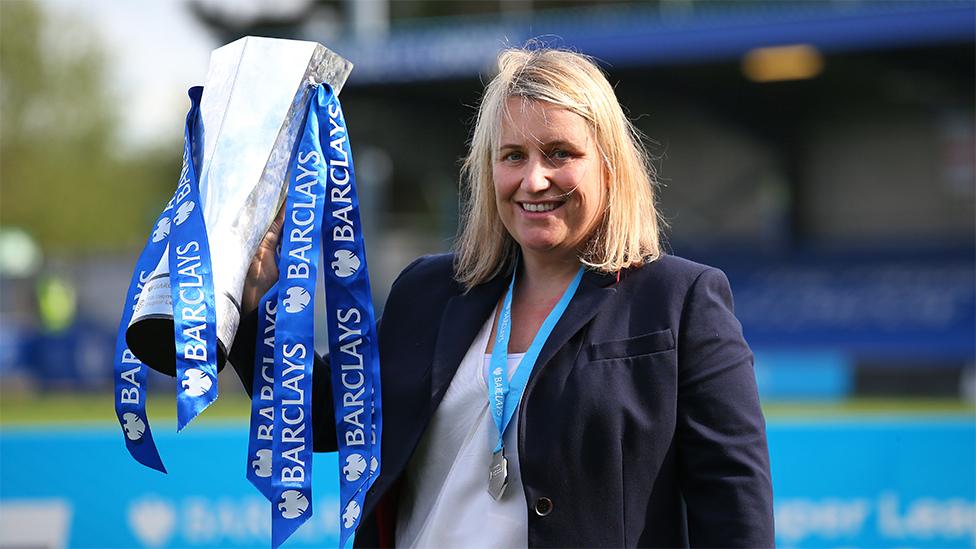
Emma Hayes OBE has changed what it means to be great in women's soccer. She went from being the best in the world at Chelsea to bringing the United States women's national team (USWNT) back to life by 2025. Hayes was born in London in 1976. He started coaching at Liverpool Hope University and the Long Island Lady Riders before moving on to Arsenal as an assistant. Since she became Chelsea's manager in 2012, the team has had more success than ever before, winning seven Women's Super League (WSL) crowns, five FA Cups, and making history by reaching the UEFA Women's Champions League final in 2020. Hayes stood out because she fought for women's health by supporting studies on menstrual cycles, pelvic floor problems, and ACL injuries. She also created athlete-centered cultures that focused on overall development. In 2021 and 2024, she won the FIFA Best Women's Coach award twice. In 2024, she was also the first woman to win the Ballon d'Or Women's Soccer Coach of the Year award. Hayes took over as head coach of the USWNT in May 2024, after leading Chelsea to a final-season victory. In Paris 2024, he led them to Olympic gold. The USWNT went 8-0-2 in 2025 under Hayes, bringing in 24 new players and starting 36 different ones, mixing young players with older ones. Her dramatic redesign, which included a new U-23 pipeline, was on display in wins like 4-0 over Ireland and 3-0 against Canada. Alyssa Thompson and other players say she helped them understand the game better. In August 2025, Hayes won the PFA Merit Award for the big changes she made. At 48, her "astronomical" year, which was full of new ideas and acceptance, makes her a global ambassador with plans for the 2027 World Cup. What will she leave behind? Raising women's soccer by being kind, making plans, and never giving up on greatness.
3. Vic Akers:
Vic Akers OBE is the architect of Arsenal Women's golden age, a pioneering force whose 35 titles from 1993 to 2009 created the framework for modern English women's soccer. Akers was born in Islington, London, in 1946. He played left-back for teams including Cambridge United and Watford before retiring in 1985 and joined Arsenal's community team. He started Arsenal Ladies (now Arsenal Women) in 1987 and was in charge of it as well as being the youth coach and men's team kitman until 2018. Akers' time in charge was marked by dominance: 11 FA Women's Premier League titles, 10 FA Cups, 9 League Cups, 5 doubles, and 4 trebles. The best year was 2006–07, when they won four trophies without losing a game, including the UEFA Women's Cup. As of 2025, this is the last time an English team has won Europe's top club championship. Akers made the game more professional by developing players like Kelly Smith, Alex Scott, and Julie Fleeting. He also made Arsenal a global brand. In 2009, he received an OBE for his work, and he was inducted into the WSL Hall of Fame for helping to make women's football more popular. Akers hasn't been in charge since 2009, but his legacy lives on in 2025. His plan for Arsenal's continued success is still in place, and he is still a kitman legend under Arsène Wenger. Akers' career, from community officer to most decorated women's coach at age 79, shows how one person's vision can change a sport.
4. Pia Sundhage:
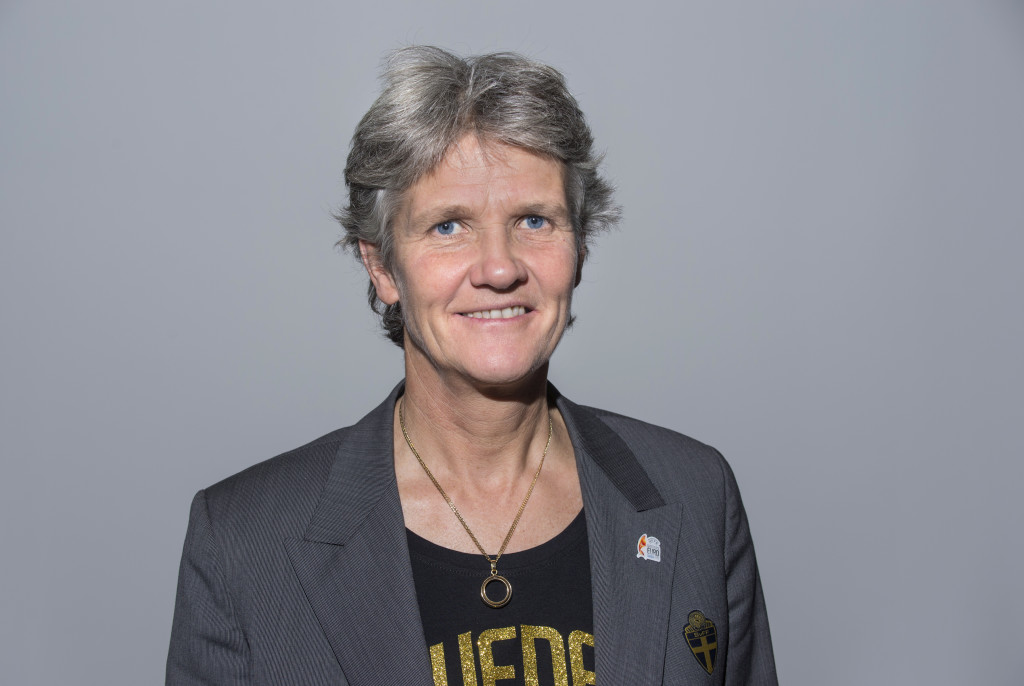
The 65-year-old Swedish icon Pia Sundhage adds charm and tactical know-how to every bench she sits on. She scored 71 goals in 146 games for Sweden, winning the Euro 1984 and Olympic silver in 1996. Sundhage coached the USWNT to Olympic gold medals in 2008 and 2012, and subsequently coached Sweden to Olympic bronze medals in 2016 and 2020. Her time in Brazil (2019–2022) and now in Switzerland (since 2024) show that she is popular all over the world. Sundhage led Switzerland to a historic quarterfinal run in 2025, when they hosted Euro 2025. It was the first time the hosts had ever made it to the knockout stage. Even though they lost to Spain 2-0, Switzerland's strong showing against the world champions sparked interest in women's soccer across the country. Sundhage instilled "togetherness" in her team before the tournament, based on her experience winning the Euro in 1984. Her outspoken leadership, which included coming out as a lesbian in 2010, and her commitment on capturing "once-in-a-lifetime" moments have helped underdogs.
Sundhage has won the Illis Quorum medal from Sweden (2021) and is known for being a coach who changes lives. Her time in Switzerland in 2025, albeit it ended in quarters, increased attendance and infrastructure. Sundhage was a trailblazer who coached Sweden at Euro 2013. Her happy manner still inspires people today, showing that experience is more important than age when it comes to fostering belief.
5. Bev Priestman:
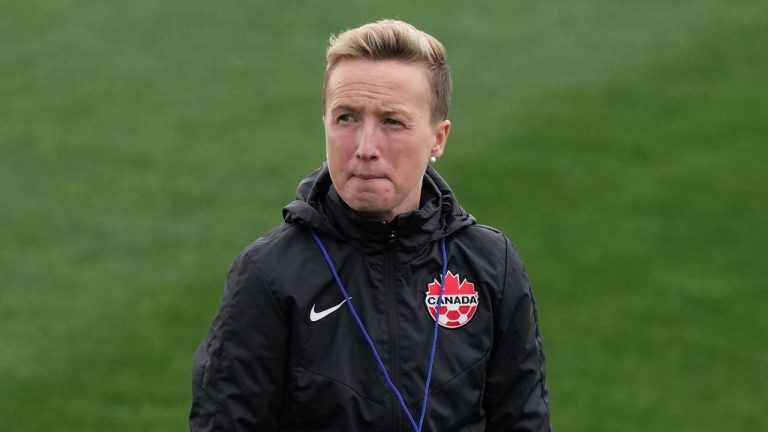
After a rough 2024, 39-year-old English coach Bev Priestman has restored her career with strength. She started playing futsal under John Herdman and joined Canada's staff in 2013. She became the U-20 head coach and led the team to the Concacaf title in 2014. Priestman was named senior team manager in 2020. In 2021, he guided Canada to Olympic gold in Tokyo, beating Sweden in penalties. This was an upgrade from bronze in 2016. Her 30-14-12 record made her think like a winner, and in 2024 she got a contract extension until 2027. But a Paris 2024 espionage controversy that involved a drone over New Zealand had her fired and banned from FIFA for a year. Priestman signed a two-year deal with Wellington Phoenix in Australia's A-League Women in July 2025. He wanted to "reset" and make history. She said, "I didn't feel safe" in Canada after the incident, but she is driven by values like player development. Priestman reestablished trust in 2025 by adding stars like Michaela Foster to Phoenix's lineup. Her new strategies and focus on mindset, which were clear in Canada's 2021 victory, put her in a good position for redemption. She wants to qualify for the finals in Wellington, which shows that she is passionate about helping athletes even when things are hard.
6. Desiree Ellis:
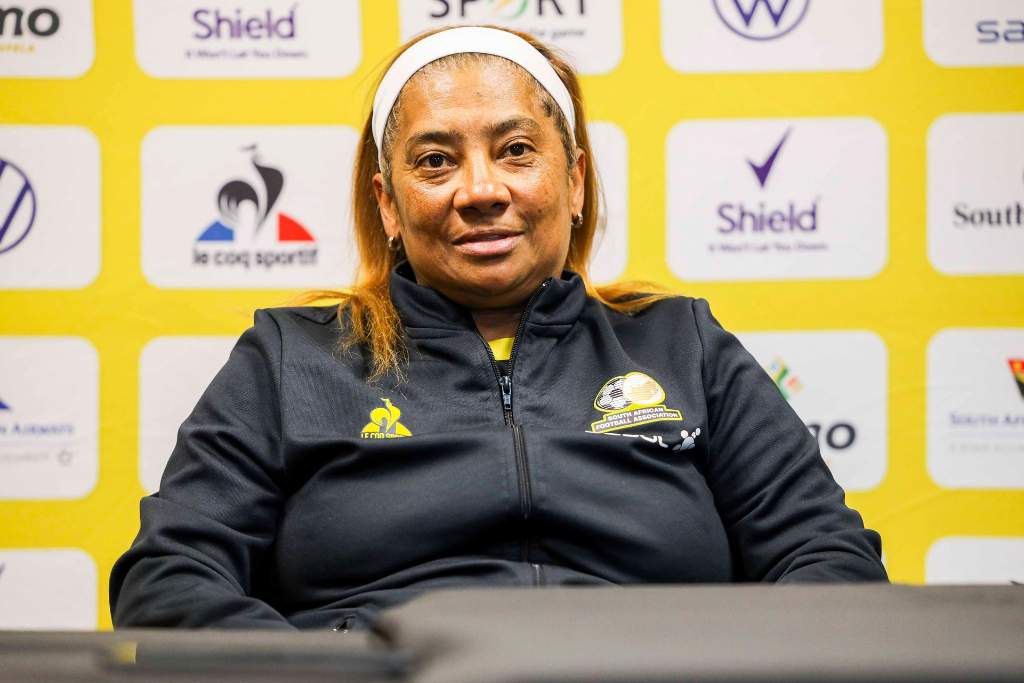
Since getting her honorary doctorate in 2024, Desiree Ellis has been known as "Dr. Desiree" throughout South Africa. She is a symbol of endurance. Ellis was born in Cape Town in 1963 and played 32 times as Banyana Banyana's vice-captain and founding member. She scored six goals before retiring in 2002. She stopped decades of near-misses as coach from 2016 to 2017 (interim, then permanent). Ellis' highest point was winning the 2022 WAFCON title, which was South Africa's first continental crown. This earned her four straight CAF Women's Coach of the Year accolades from 2018 to 2023. She led Banyana to two World Cups in a row (2019 and 2023), winning 3-2 against Italy in 2023, and four COSAFA Cups. In 2025, Ellis defended WAFCON in Morocco and made it to the semifinals, where she lost to Nigeria. She praised her "brave warriors" for making it that far. Ellis, who won the National Order of Ikhamanga in 2023, brings young people together while asking for their whole attention. Her goal-oriented approach, which has taken her from illegal street games in apartheid-era South Africa to stages around the world, is inspiring. At 62, Ellis is looking forward to the World Cup and showing that she is strong: "We can do more."
7. Norio Sasaki:
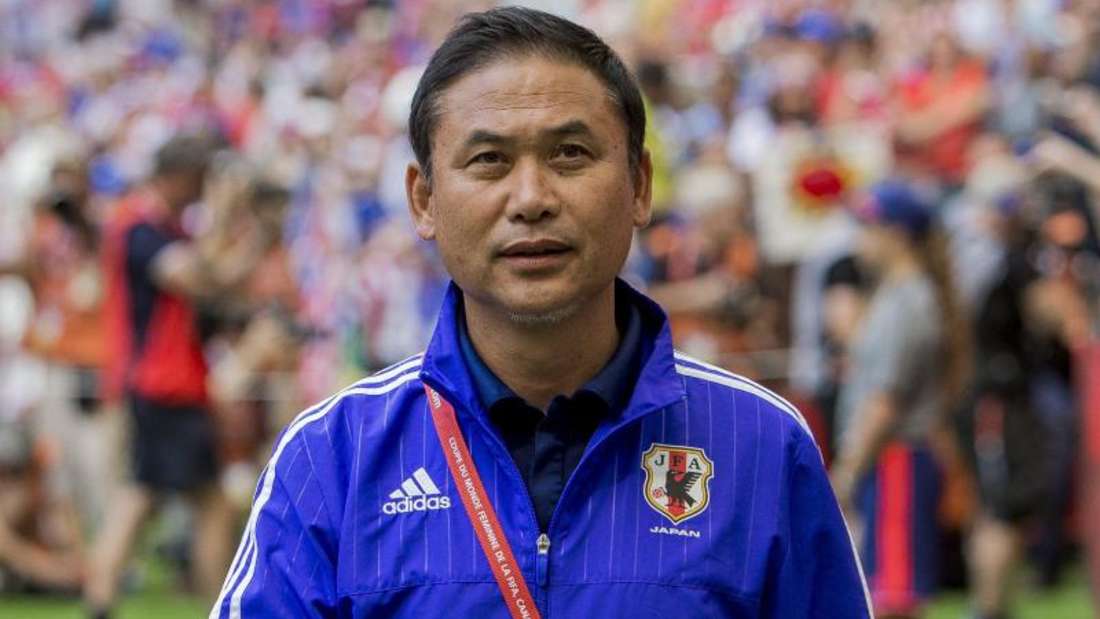
Even though Norio Sasaki is a man, he is included because he changed women's soccer in Japan with Nadeshiko. Sasaki was born in 1958 and played for NTT Kanto before becoming the coach of Omiya Ardija. He was named coach of the Nadeshiko in 2007 and led them to victory in the EAFF Championship in 2008. Sasaki's best moment was when Japan won the 2011 World Cup by beating the US 3-1 on penalties. This was Japan's first trophy and earned him the People's Honour Award. He won silver in the 2012 Olympics and the 2015 World Cup. His gold medal at the 2010 Asian Games and his work developing players like Aya Miyama and Homare Sawa made Japan more well-known around the world. Sasaki retired in 2016, but his impact lives on. Nadeshiko's success in 2025 is largely due to his plan for discipline and style. His tale at 67 shows how men can have an impact on women's sports.
8. Silvia Neid:
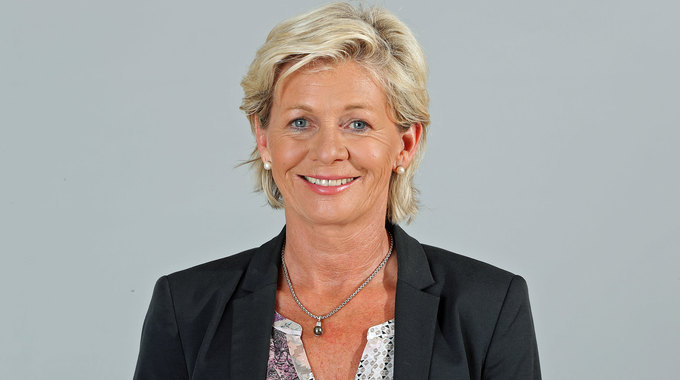
As a player and coach, Silvia Neid changed women's soccer forever. She was Germany's tactical genius. Neid was born in 1964 and played for TSV Siegen. He won seven Bundesliga titles and six DFB-Pokals. In 111 games, he scored a lot of goals, including three in a 1987 game. She was the national coach from 2005 to 2016 and led Germany to its first Olympic gold medal in 2016, as well as the World Cup in 2007 (2-0 over Brazil), the Euros in 2009 and 2013, and the Euros in 2013. Neid's 111 wins in 146 games made her a dynasty and showed how strong she was. After she stopped playing, she coached China from 2017 to 2018 and then joined the DFB academy. Her entrance into the Hall of Fame and her awards in Mexico in 2025, when she was 61, cement her legacy. Neid's plan—vision and tearing down barriers—shows that women can be the best in the world.
9. Sonia Bompastor:
Sonia Bompastor, Chelsea's undefeated architect, is a great player and manager at the same time. She won seven Champions Leagues with Lyon and scored 19 goals in 156 games as a French midfielder. She won 11 league titles, four Champions Leagues, and cups while coaching Lyon from 2014 to 2021. After Hayes left Chelsea in 2024, Bompastor won the WSL title (sixth straight, unbeaten in 22 games, 60 points record), the League Cup (2-1 over Man City), and the FA Cup (3-0 over Man United treble before 74,412 at Wembley). She won seven straight WSL games to open the season. Bompastor wants to win the Champions League after being awarded London Manager of the Year in 2025. At 44, she is a rising star because of her intensity and her desire to make history—she won her first WSL triple since 2011. She has a partner, Camille Abily, and four children.
10. Laura Harvey:
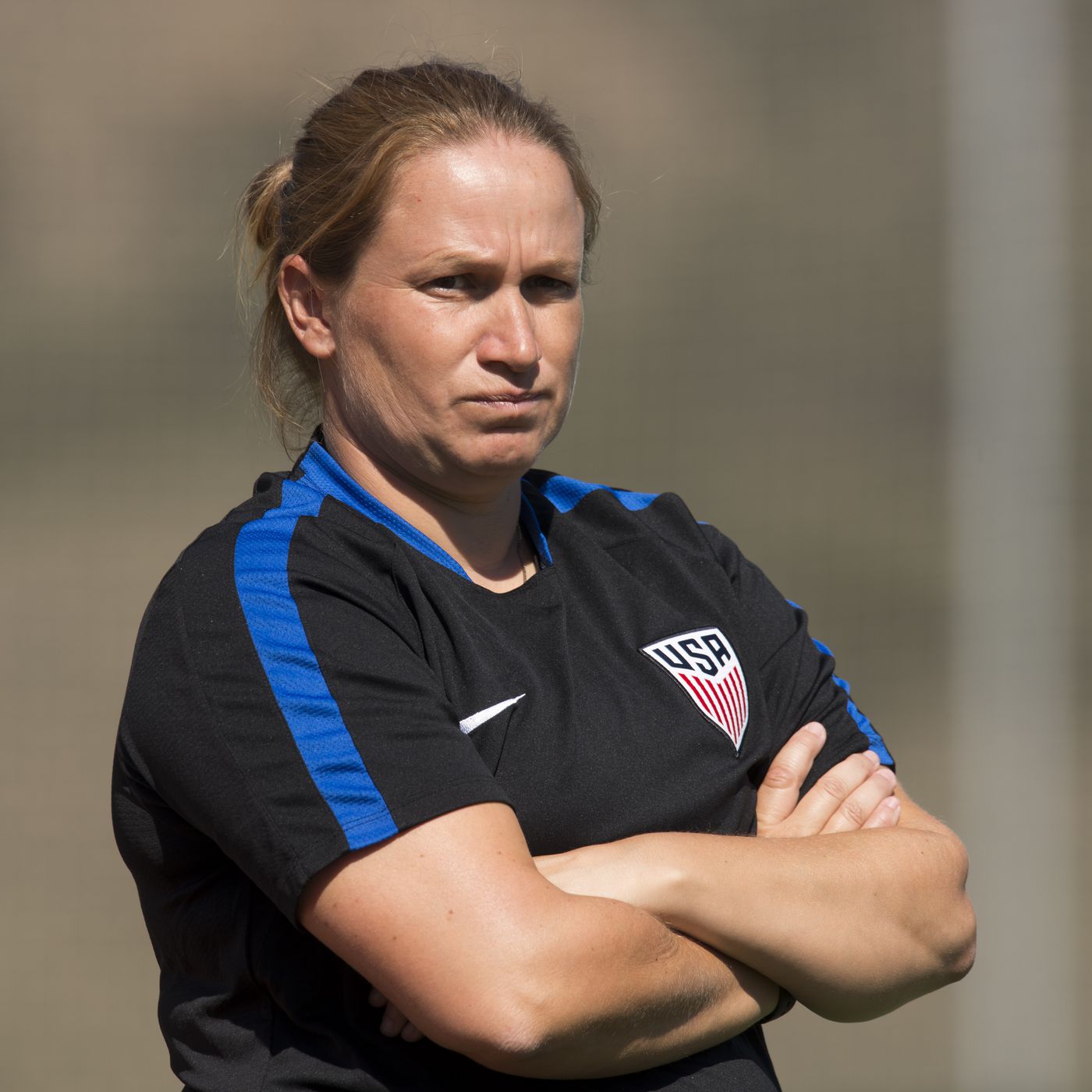
Laura Harvey, the NWSL's most successful coach, is a model of both longevity and new ideas. She was born in England in 1980 and played at Coventry before managing Arsenal to a WSL treble in 2011, which won her the FA Manager of the Year award. Harvey joined Seattle Reign in 2013 and won three Shields (the most in league history) in 2014, 2015, and 2021. He also earned three Coach of the Year accolades (the most ever). After the 2020 Olympics, Harvey became the U.S. U-23 coach. In 2023, he reached 200 NWSL games, which will last until 2025. In 2025, OL Reign's pipeline sent five players to the U.S. World Cup team when they were 45 years old. Her player-first approach, which builds trust and confidence, has made stars like Megan Rapinoe. Harvey's ten years of records, which include the most regular-season wins, make her a trailblazer and an inspiration to female coaches all around the world.
Comments 0